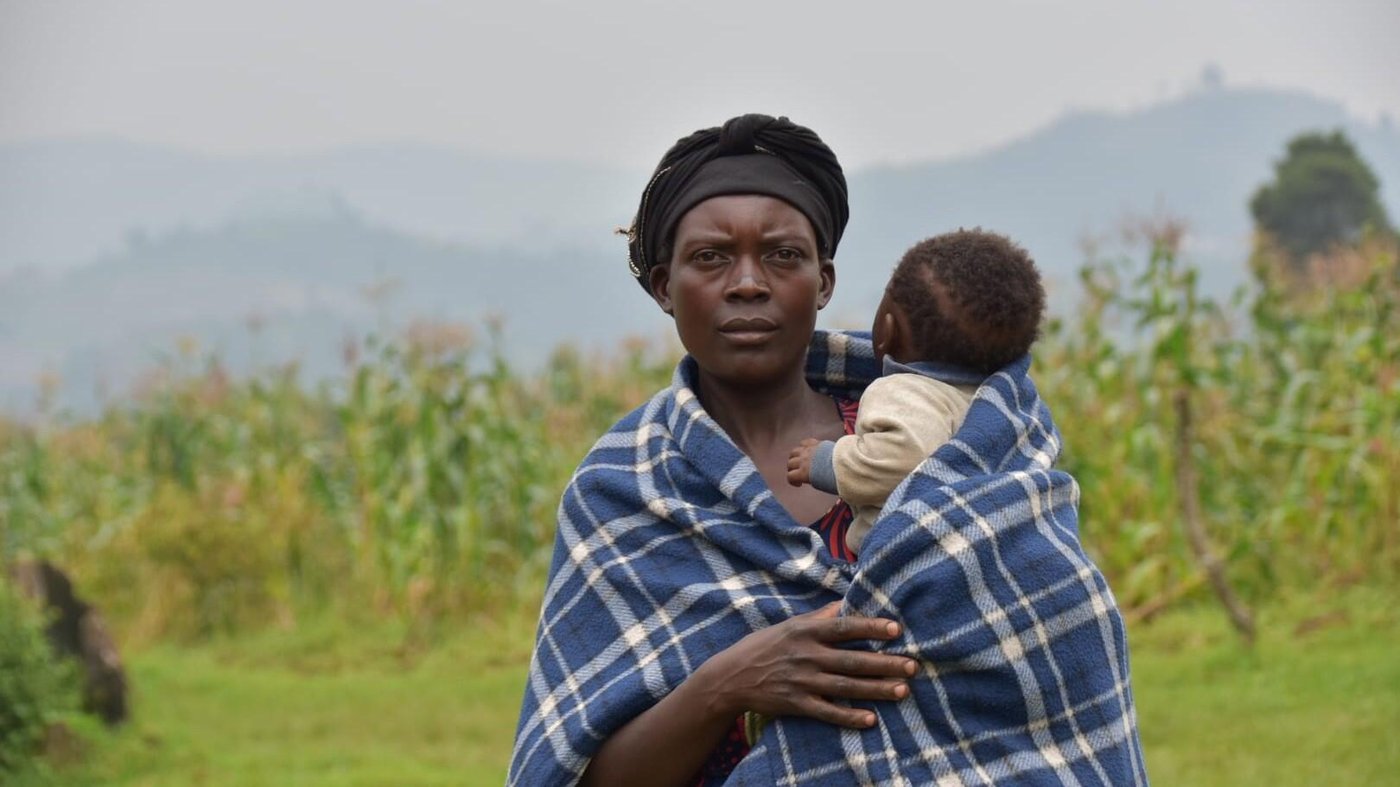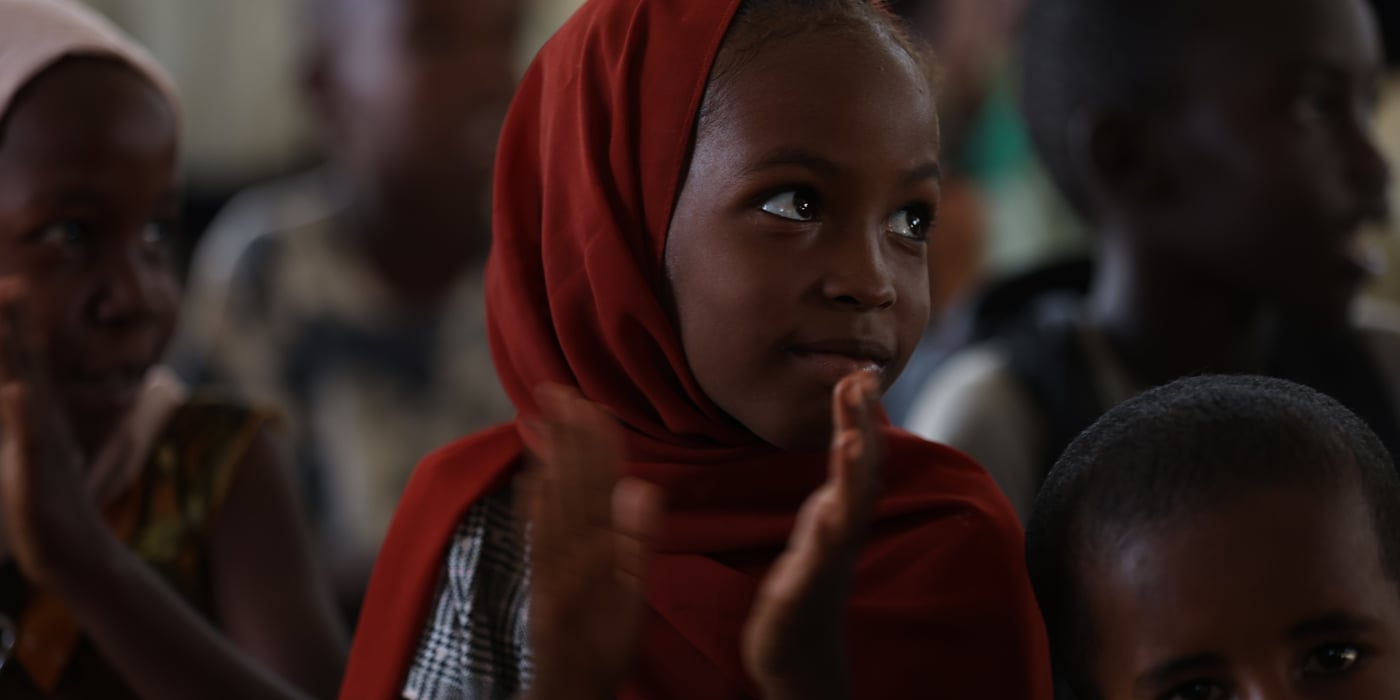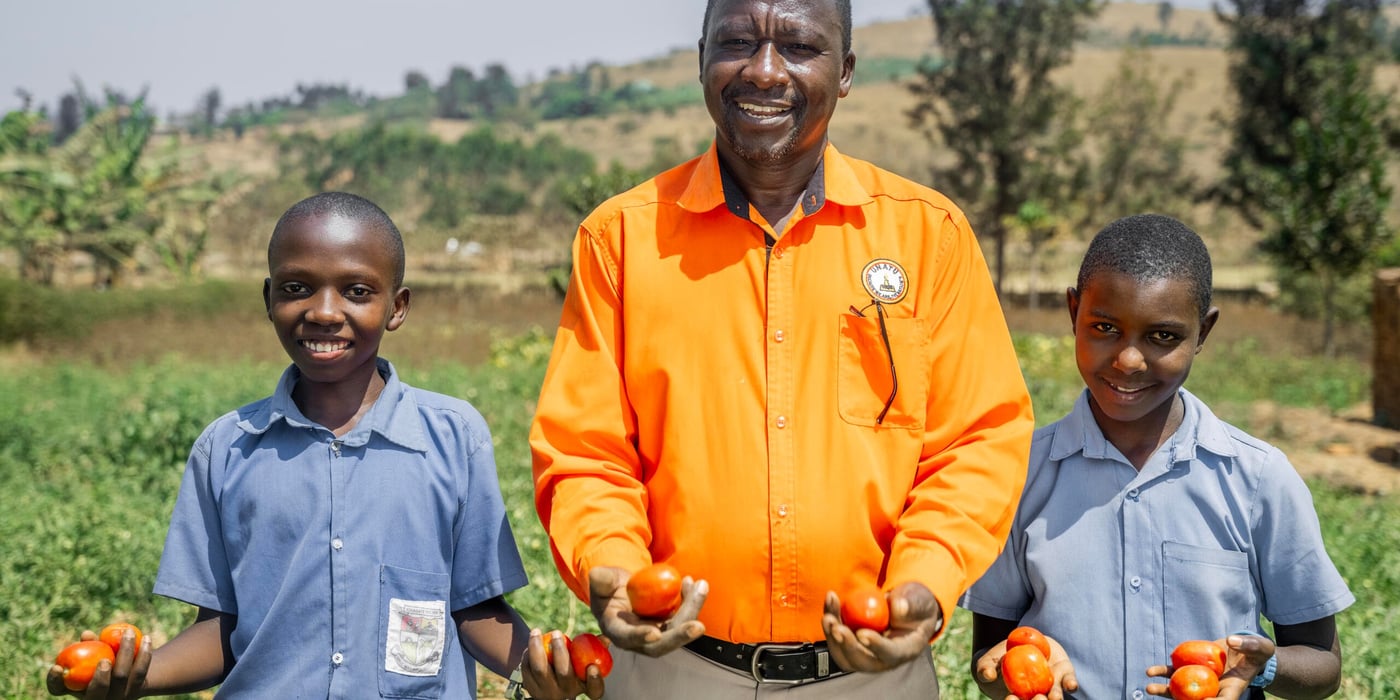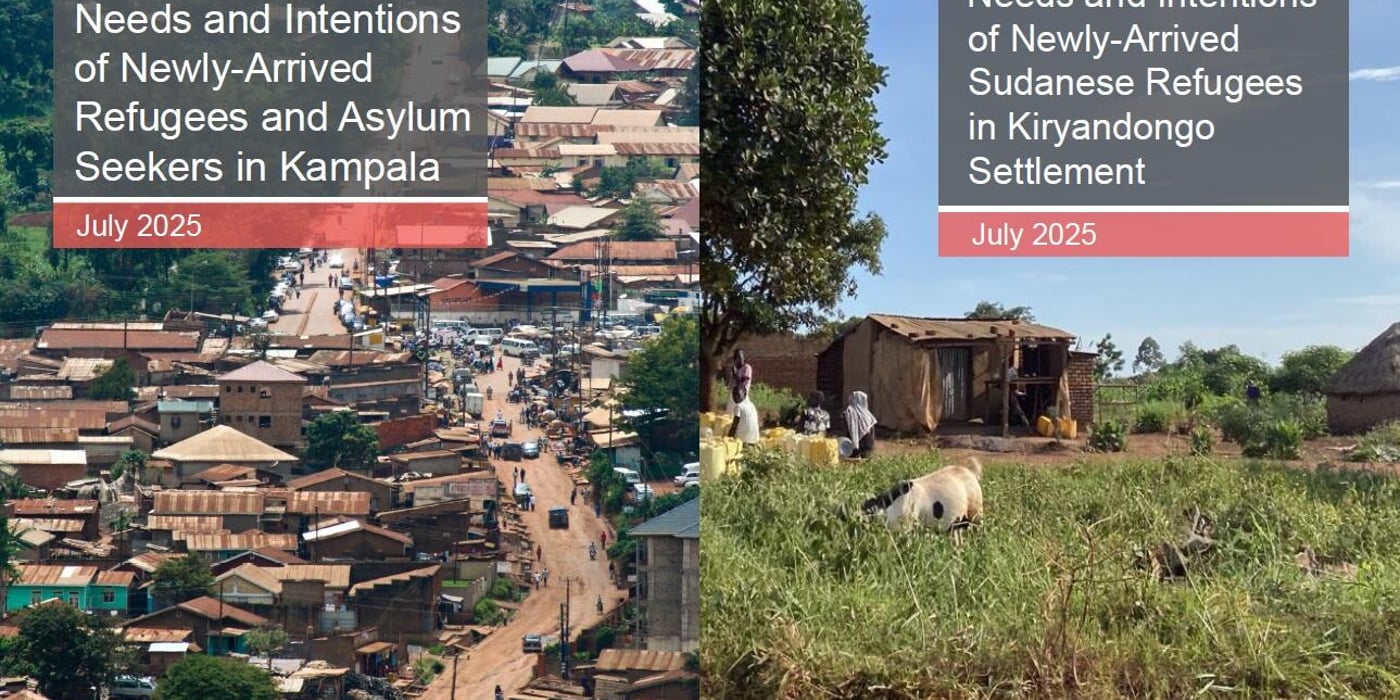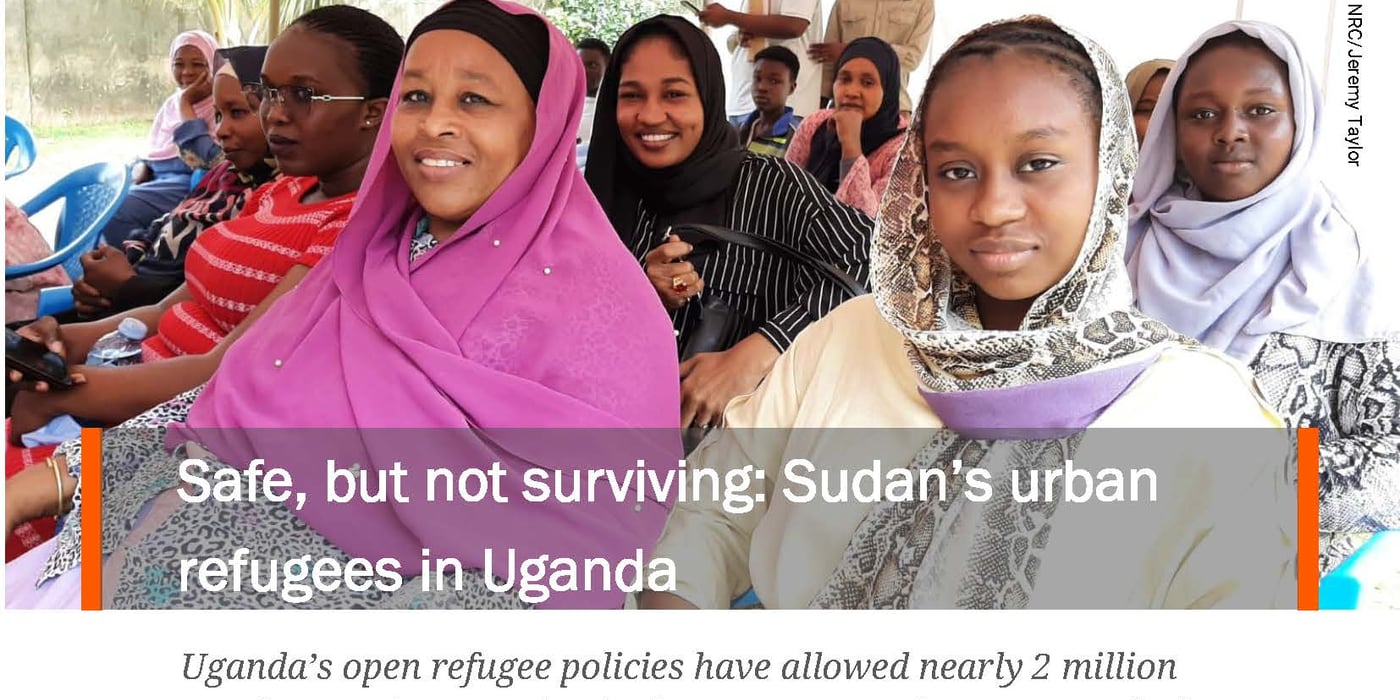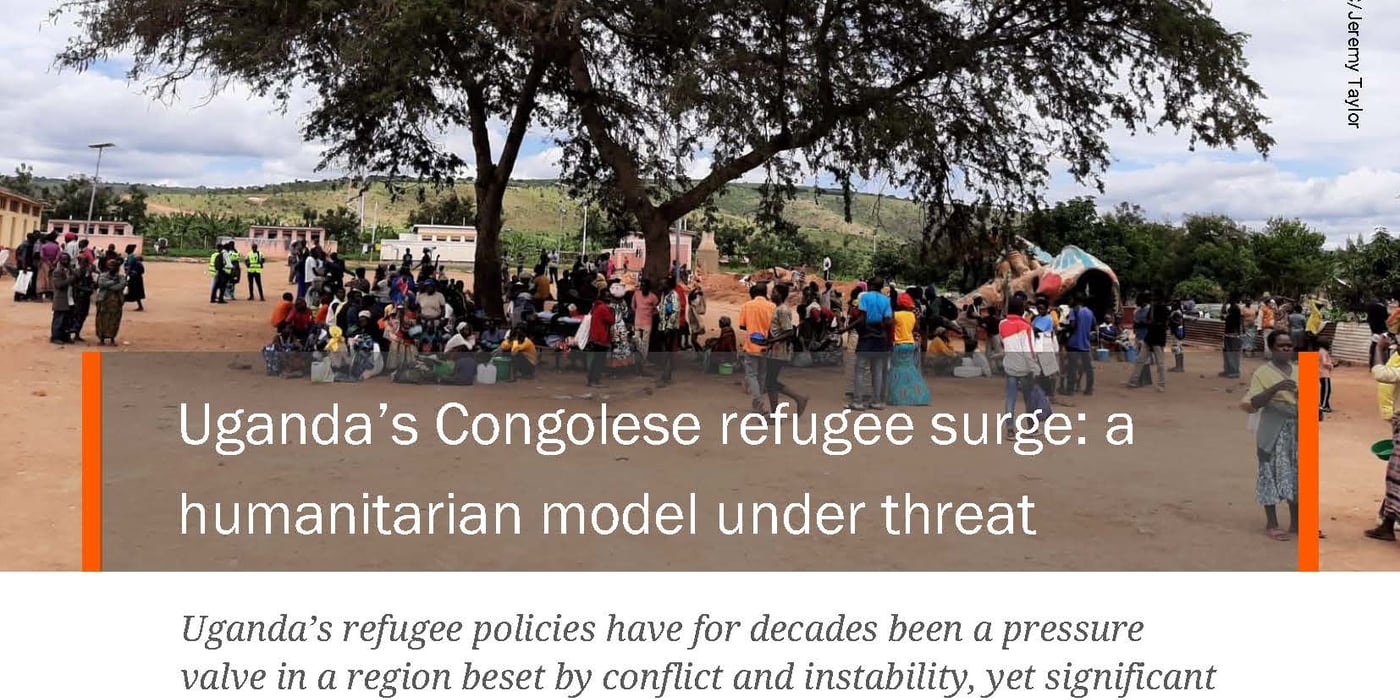The Norwegian Refugee Council (NRC) is active and has a presence in all the areas where refugees are arriving. We focus mainly on hard-to-reach populations – providing life-saving, long-term support to those most in need of our help.
What’s happening in Uganda?
The Ugandan government has a progressive, open-door policy for refugees and has welcomed over 1.7 million new arrivals in recent years. Over 90 per cent are in refugee settlements, while the remainder live in urban areas.
However, food shortages are a major concern in many regions, due to climate change, crop diseases, new invasive pests and limited access to key agricultural resources. Despite the country’s farming potential and significant exports, it is ranked 159 out of 193 countries on the Human Development Index and its food insecurity levels are classified as “serious” by the Global Hunger Index. The increasing frequency of droughts and floods is heightening the vulnerability of its smallholder farmers, in a country reliant on rain-fed agriculture.
Food shortages, together with a lack of international funding, have led to serious cuts in the country’s food aid and have reduced food refugees’ rations – in some cases, to nothing at all. In addition, recent communicable disease outbreaks of Mpox and Anthrax have exacerbated the dire situation. The underfunded humanitarian response could seriously affect the country’s long-term development.
Our response
We’re working with our partners in the following areas:
- Water, sanitation and hygiene – improving access to sanitation and clean drinking water at the household level and reducing the transmission of faecal-oral diseases by promoting good hygiene practices in refugee settlements and host communities.
- Shelter and settlements – distributing emergency shelter kits, constructing emergency and permanent learning spaces, providing furniture, and building more secure, dignified shelters.
- Livelihoods and food security – helping people, particularly those with disabilities or other specific needs, to diversify their livelihoods, improve their self-reliance, and access income-generating opportunities and cash grants.
- Education – running remedial, language-bridging and catch-up classes for children, providing psychosocial support (Better Learning Programme), improving learning facilities, and training young people in vital vocational skills.
Our operations
NRC office established: 1997, re-registered 2014
Areas of operation: West Nile districts of Yumbe (Bidibidi settlement), Terego/Madi-okolo (Rhino Camp & Imvepi), Arua Urban, Lamwo, Adjumani (Ayilo, Nyumanzi, Magi), Kampala and Southwestern districts of Isingiro (Nakivale/Oruchinga), Kisoro, Bundibugyo and Kikube (Kyanggwali)
Country Director: Laura Marshall
Contact: laura.marshall@nrc.no

Our impact
In 2024, we assisted 338,999 people through our programmes in Uganda:
-
158,525Education
-
30,951Livelihoods and food security
-
10,936Protection from violence
-
171,809Information, counselling and legal assistance
-
31,827Water, sanitation, and hygiene
-
10,433other NRC activities


